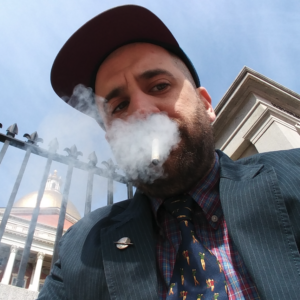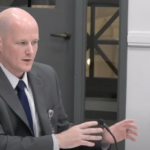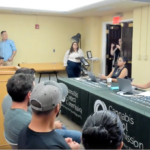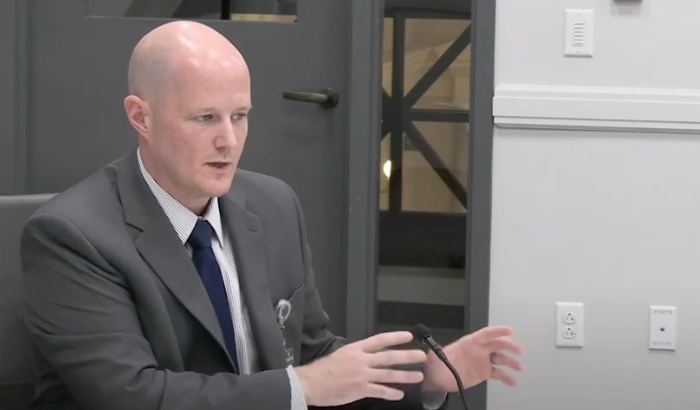
From license classes to health and safety concerns, the Cannabis Control Commission had a similar promising proposal for social consumption in 2017. Did it really take this long to get back to square one?
After months, years, and even generations of waiting in some sense, last week’s unveiling of a proposed Massachusetts Cannabis Control Commission framework for Social Consumption Establishments [SCEs] was so massive that it was hard to fully process in real time. As a reporter who has followed cannabis for 20 years in the Bay State, I stuck to the basics in our initial coverage, detailing the highlights and contours of the forever-awaited proposal.
There will be countless follow-ups. In some ways, social consumption will show up in almost every kind of upcoming article, about everything from social equity to product potency and business. Later this week, I’m joining some current Massachusetts operators to discuss the issue on a podcast, and will subsequently disseminate chatter from that conversation. But for now, in order to imagine what’s ahead with total clarity, I have to dig into this topic’s tumultuous past one last time.
While Talking Joints Memo has chronicled every step of the process these past few years, I was only recently made aware of insightful draft Mass regulations for social consumption that could have been, but never were. Former CCC Commissioner Shaleen Title, who later founded the Parabola Center for Law and Policy, was even kind enough to lead me to them. What follows is a comparison of that proposal, from December 2017, to the one commissioners proposed seven years later.
The meaning of social consumption in Massachusetts
The definition of social consumption hasn’t changed much. Then: “A marijuana social consumption establishment may purchase marijuana from licensed marijuana establishments and sell single servings of marijuana to consumers for consumption on the premises.” Now: “A Marijuana Establishment licensed by the Commission where Consumers can purchase and safely consume Marijuana and Marijuana Products.”
Proposed social consumption license classes, then and now
The current CCC commissioners are proposing three distinct on-site social consumption license classes: “Supplemental” (for: “Existing, qualifying [Marijuana Establishments] MEs, including Cultivators, Product Manufacturers, Retailers, Microbusinesses, Craft Marijuana Cooperatives or Delivery Operators”); “Hospitality” (for: “Qualifying Consumption Licensee in a new or existing non-cannabis commercial business space”); and “Event Organizer” (for: “Qualifying Entities may organize and host Temporary Consumption Events”).
Similarly, commissioners in 2017 were eyeing three classes: “Primary Use,” which would “be required for any commercial enterprise for which 51% or more of average monthly revenue is derived from the sale of marijuana products to be consumed on the premises”; “Mixed Use,” which would “be required for any commercial enterprise for which the consumption of marijuana is a secondary or shared purpose to a non-cannabis business purpose”; and “event licenses,” which they planned to address more formally after the first two types got up and running.
Parallel policy considerations
There are several sections from the old draft and the new proposal that resemble one another. Like the part about people not being able to split with their clipped spliffs. Then: “Procedures [are required] to ensure that marijuana purchased on site does not leave the premises, including disposal procedures.” Now: “No cannabis products [are] to be brought into a Social Consumption Establishment,” while “personal product [is] to be disposed [of], stored, or [the] customer must leave [the] premise.”
Alcohol was and still is a non-starter
It’s clear in the new social consumption proposal that there will be “No intersection of alcohol or tobacco and tobacco products within licensed spaces/premises.” That’s completely understandable; everyone who I have spoken with who has experience in party promotions is reluctant to endorse a bud and booze cruise.
While the current CCC members have said this particular precaution was inspired, at least in part, by advice from social consumption stakeholders and regulators in other states, there was also forewarning in the December 2017 draft regulations: “No social consumption establishment may serve or allow the consumption of alcohol in any form on the premises at the same time that the establishment serves or allows the consumption of marijuana in any form on the premises.”
Infused food was on the table back in 2017
Food was in play seven years ago. The 2017 proposal read (emphasis mine): “All marijuana products must remain in the original packaging and may not be further processed, except social consumption establishments that are licensed as a restaurant (common victualler).” Minutes from the CCC’s policy discussion from the time further detail: “They may prepare edible marijuana products on the premises, using the infused materials that they have purchased.”
More than half-a-decade later, here’s what the CCC has on the menu for social consumption: “Food services to be required at all licensed [SCE] Marijuana Establishments … Food and any infused cannabis products must be served to [the] consumer separately … Food service training to be required at establishments where food is prepared on site … Options also include delivery services or partnerships with existing and possibly adjacent restaurants/food establishment.”
Health and safety concerns aren’t new either
For better or worse, and with some notable exceptions like on testing-lab guidance, the CCC tends to hug the shoulder on the prudent extreme of the safe lane when it comes to public safety. So it’s unsurprising that the current cast is calling for “Standard Operating Procedures for ‘cool down strategies’ to help [Social Consumption Establishment] customers with adverse reactions,” a “30-minute cut-off before posted closing hour of licensee,” and “Transportation strategy … for all licensees to assist impaired consumers.”
That all makes sense—so much sense, apparently, that the founding CCC commissioners included language in their 2017 draft related to “Procedures to ensure that consumers are not over-served,” as well as “A reasonable plan to assist patrons in acquiring taxi, ridesharing, or other third-party transportation services.” They actually went even further: “Any such plan must, at a minimum, provide an area with electrical outlets and ports for charging common types of cell phones, identify designated pick-up areas near the premises for ridesharing or taxi services, and provide assistance in calling for taxi services for patrons who do not have access to ridesharing services.”
What happened to the generous 2017 draft regulations
They were close. So close that I can smell the dab bar. Per the December 2017 minutes, “Commissioner Title began the discussion regarding on-site consumption, including smoking, is to allow municipalities to permit smoking in social consumption establishments, to allow establishments licensed by the Department of Revenue as smoking bars to permit smoking, and then, by January 31, [2018] appoint a special working group to create recommendations for regulations on smoking, and other forms of social consumption, by July 1, [2018].”
Their goal was for people to be able to puff in licensed venues by that October. In the meantime, “Social consumption may move forward in the meantime without smoking.” But that’s not what happened.
As former Commissioner Title explained, “The initial framework draft passed by the commission in 2017 was actually generous and pretty imaginative—restaurants, yoga studios, movie theaters, and massage businesses—but got publicly shot down by [then-Gov. Charlie] Baker and various [state] agencies.” And so instead of the afore-touted draft regulations, we got stuck with a 2018 cannabis bill that included a provision to allow municipalities to permit weed lounges, but mandated cost-prohibitive ventilation systems, as well as limited edible sales to only room-temperature products, among other non-starters.
What a difference seven years makes
Between then and now, among some other nothingburgers, a “pilot program licensing primary-use social consumption establishments (cannabis cafes) and event host licenses (events open to the public)” was conceived in 2019. That unpopular concept was kicked down the road until May 2023, when commissioners voted to scrap it.
Other than those dead-end developments, very little has changed in this lane since 2017. The public was ready for social consumption then, and we’re ready for it now. It must be the skittish politicians who have come around. In that sense, everything that’s happened in this area has been a dog and pony show to satisfy the leadership on Beacon Hill. What else explains how little difference there is between the concepts that Title and the other founding CCC members and staffers pitched back then, and what we are anticipating in the present?
That’s not to minimize the infinite hours of work, some of it likely fulfilling but also certainly mundane and tedious behind the scenes, that all of the commissioners, and especially Stebbins and Nurys Camargo, as well as CCC employees across all departments are putting into the rollout forthwith. But the past is worth acknowledging as the state moves ahead in the regulatory process. There are still more strong ideas in those dusty old minutes; we’ll be noting them in future coverage, and the commissioners are also considering the work of their predecessors.
At a media availability following last week’s presentation, acting Chair Stebbins credited “the inaugural commissioners with putting some foundations on the books,” and confirmed that his team “will continue to use some of those as part of our regulatory framework.”
What could have been?
As former Commissioner Title also explained, while her colleagues wound up approving a lackluster framework, they at least included a frame to accommodate future work. And maybe it’s best that they didn’t go further. With the laws that were in place around Host Community Agreements at the time, cities and towns would have been able to get in the way of progress and away with legally extorting weed cafes within their borders like they do dispensaries and cultivation companies.
I’m tempted to spend weeks painstakingly writing a much more exhaustive account of what happened to the ill-fated 2017 social consumption proposal—maybe even film a few dramatic interviews with former legislative aides who watched the futuristic weed-lounge language burst into flames of despair, only to stay quiet until now!?! But this postmortem moment will have to suffice. It’s finally time to look forward.
























